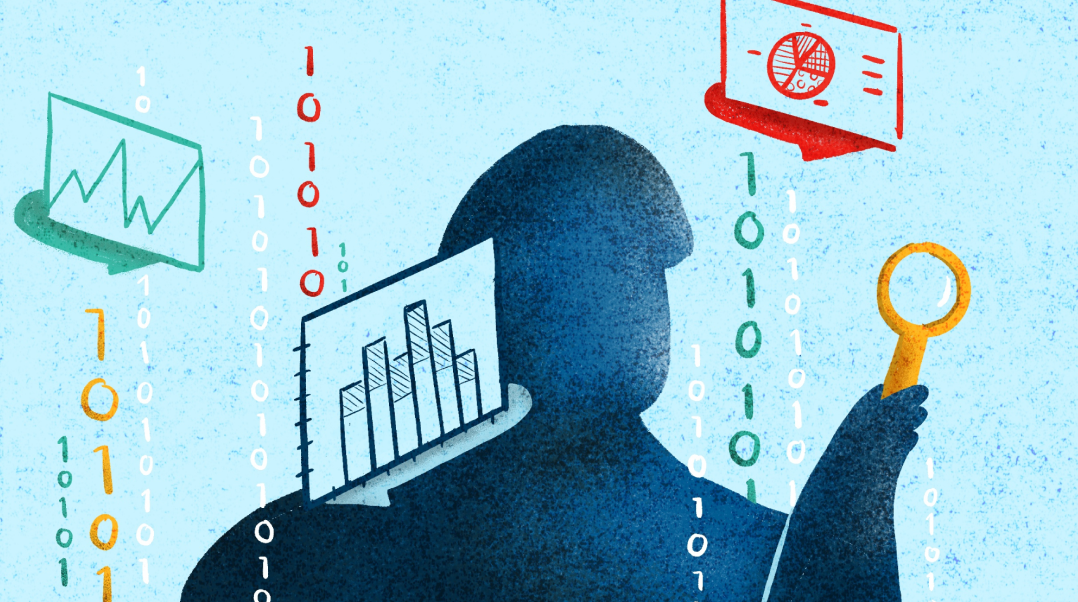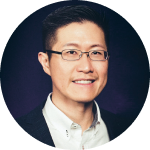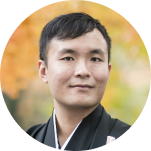The SAS Programming and Its Application Book Prize is awarded to the top graduating student from the Bachelor of Science in Business Analytics to encourage him or her to make a difference through analytics and technology. A leader in analytics, SAS Institute Pte Ltd empowers organisations around the world to transform data into intelligence through innovative software and services.
The Age
of Analytics
A conversation on the
potential of big data

Q: Is the transformational potential of big data true? Can it really make our world better or safer?
Chee Siang: Studies have shown that the potential of big data continues to grow. We’re now seeing how businesses and governments use data analysis to discern patterns and make better decisions. As many tech figures believe, data is the fuel of the future. Being in this field, I definitely witness how that is true.
Mr Teoh: Yes, the potential can’t be understated. What’s also really powerful is that big data is relevant to almost all industries – from public safety, social services and education to infrastructure and more. For us, we’ve been really excited to use data analytics to address diverse issues across food security, healthcare, the life sciences and transport.
Q: That’s what we’re curious about too: How are each of you currently working with data to address real-world issues?
Mr Teoh: In recent times, due to the pandemic, we’ve been using advanced analytics to improve healthcare. We’re collaborating with a foundation that helps patients with chronic obstructive pulmonary disease, a condition causing severe chest and breathing problems. We apply machine learning and AI to natural language data collected from surveys done in the community, so that we can identify the best treatments. The foundation also leverages our text sentiment analysis and visual analytical tools to explore unstructured data, identify trends and create reports that better understand patients’ needs.
In another project, we’re partnering with a biopharmaceutical firm. We use tech to deliver personalised healthcare solutions to patients, with an aim to optimise health outcomes. We do this by integrating pharmaceutical products with diagnostics, data, devices, education and support services in a fully regulatory-compliant cloud environment. This way, the firm’s international teams can access the data anywhere and at any time and decentralise clinical trials, making healthcare more accessible and affordable for all.
Chee Siang: It’s inspiring to hear how SAS is using healthcare analytics to make a direct impact on patient care. For me, I’m employed in an electronics manufacturing firm. In this industry, efficiency is a key concern. My role is to use data analysis to improve operational efficiencies.
I manage customer orders, which exposes me to sales data. I analyse the data to understand who our customers are, what their needs are and how they behave. I enjoy drawing insights from the data to communicate trends to various departments and predict outcomes. This helps the company to make well-informed operational decisions involving manpower and inventory adjustments.
Q: Thanks for sharing about the work you do. In the age of analytics, the possibilities of data are indeed vast.
Chee Siang: I’m thrilled to be in this field! Big data will evolve and change how we live and work. The SUSS Business Analytics course opened my eyes to a totally different world too. The knowledge that I’ve acquired has improved my analytical skills, and it’s rewarding to use data to make useful recommendations to stakeholders.
Mr Teoh: We do hope that students like you grow in your passion to pursue data analytics and find solutions to business and social issues. We would like to add that apart from possessing skills in digital literacy, computational thinking and flexible thinking, it is also important to grow in emotional and social intelligence in this digital age. The abilities to collaborate and empathise are uniquely human and cannot be replaced by digital technologies.
It is also incredibly vital for both public and corporate organisations to have a coherent decision sciences strategy that leads to operational outcomes. Doing so helps fortify and, more importantly, institutionalise their market differentiation and unique value to society. With a clear strategy, big data can now become the fuel to propel organisations towards their operational goals.
Nature Meets
Technology
As we face the pressing global issue of climate change, SAS Institute is using AI and analytics to better understand biodiversity and improve food security.
Assessing Biodiversity with AI
Many species on the planet are getting more vulnerable to extinction. Assessing their vulnerability can be a very manual and costly endeavour. SAS Institute and NatureServe, an organisation focusing on protecting biodiversity, aim to address efficiencies and cost savings through analytics and AI, which can help to automate the assessment process and retrieve more reliable results on over 7 million species of plants and animals.
Data Science to Protect Crops
To enhance global food security, SAS Institute and biotech company Boragen are pursuing crop protection research. Boragen is a pioneer in using the element boron to create molecules that fight plant disease and protect crops. Yet getting a new compound from lab to field is expensive and time-consuming, as it comprises several phases. By applying AI and machine learning to Boragen data, researchers can speed up the process and better predict which products are more effective to be moved to the next testing phase – these also help to generate greater cost savings.


